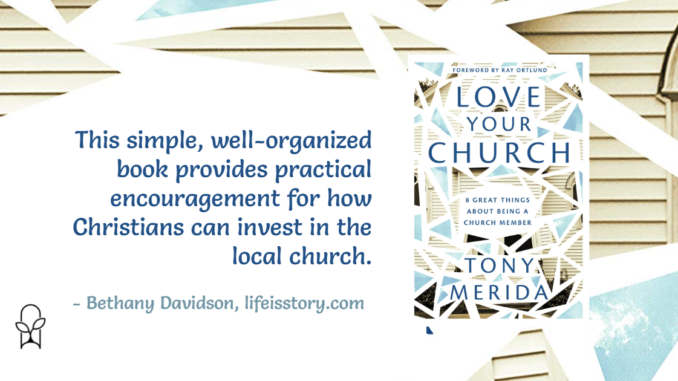
Also by this author: Ruth For You: Revealing God's Kindness and Care, Gather, Belong, Welcome
Published by Good Book Company on June 1, 2021
Genres: Non-Fiction, Christian Life
Buy on Amazon
Goodreads

God calls us to be devoted to one another in love (Romans 12:10). What does this look like for us today? How can we be the kind of church member who makes a real difference?
This engaging book by Tony Merida explores what church is, why being part of it is exciting, and why it's worthy of our love and commitment. He sets out eight privileges and responsibilities of a church member: to belong, to welcome, to gather, to care, to serve, to honor, to witness and to send.
As we see how wonderful it is to belong to God's family and be a part of his amazing witness to both the earthly and the heavenly realms, we'll grow in our love for and commitment to our local church.
This is a great book for every churchgoer to read, whether they're new or have been attending for some time but need re-energizing with God's vision for the local church.
With discussion guides at the end of each chapter and video introductions, Love Your Church is also a great resource for small groups.
This simple, well-organized book shares Scriptural insight and practical ideas for how Christians can love and invest in the local church. In Love Your Church: 8 Great Things about Being a Church Member, Tony Merida writes based on his long-term experience as a pastor, but he keeps the book general to any Protestant denomination, without making the book too narrow to his specific background or experiences. People can find this book beneficial as they begin to reinvest in church after periods of absence due to the pandemic, and Merida makes a strong case for why the local church is essential to personal spiritual growth, engaging with and serving other believers, and reaching the wider community with the gospel.
Merida writes about different elements of church life, such as welcoming others, finding a place to belong, and serving. He bases the primary content of each chapter on Bible passages directed to the early church, with occasional personal anecdotes or other illustrations, and he concludes each chapter with practical action steps that people can take within their local contexts. Because the book focuses on broad spiritual concepts and core values, the action steps apply to any church member, without being specific to a particular church situation or personal life stage.
My one critique of this book is that Merida did not include a chapter about how to wisely depart from an unhealthy church. In the chapter about honoring leaders, he makes it clear that Christians are only subject to pastors who lead humbly by example, and that toxic, domineering leadership has no place in the body of Christ. However, he does not provide guidelines for how people can get out of an abusive church situation in a civil way, find a new church home, and honor God and emotionally heal during their transition process. As it stands, this book outlines the hallmarks of a healthy church and warns against narcissistic leaders, but it could have been stronger and helpful to more people if Merida had included guidelines for when and how to break community with a spiritually abusive or generally unhealthy church.
